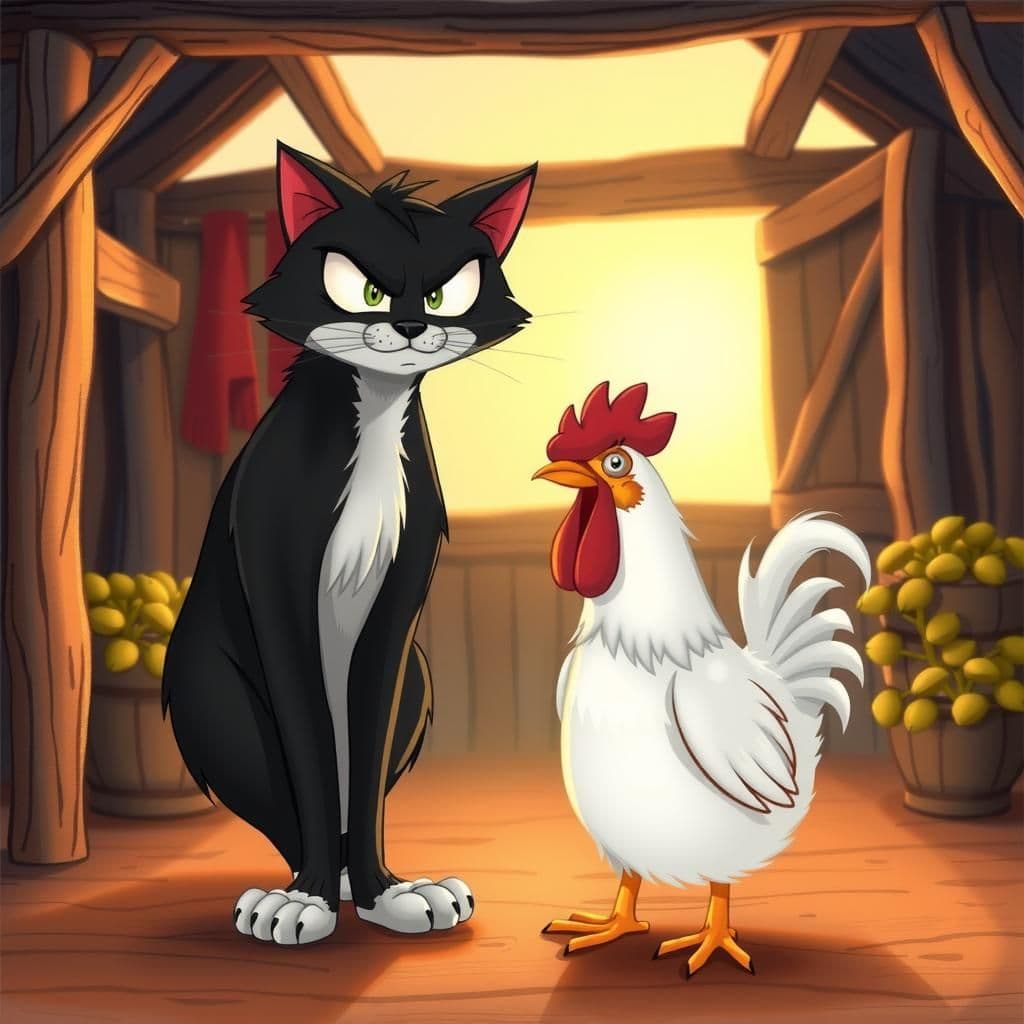The Thistles upon the Grave
In the very short moral story "The Thistles upon the Grave," a Mind Reader wagers that he can be buried alive for six months, using thistles to secure his grave against disturbances. However, after only three months, he emerges to eat the thistles, losing the bet and illustrating the folly of underestimating basic needs. This simple short story serves as a reminder that even the most clever plans can be undone by simple desires, making it a notable example among famous moral stories for class 7.

Reveal Moral
"The moral of the story is that even the most clever plans can be undermined by basic human needs and instincts."
You May Also Like

The Cat and the Cock
In "The Cat and the Cock," a Cat captures a Cock and seeks a justification for eating him, accusing the Cock of disturbing men with his nighttime crowing. Despite the Cock's defense that his crowing helps men wake for their labors, the Cat dismisses his pleas, illustrating a big moral story about the disregard of reason in the face of predation. This short story with moral highlights the consequences of selfishness and the importance of understanding intentions in life-changing stories.

The Hawk and the Nightingale
In the classic moral story "The Hawk and the Nightingale," a Hawk captures a Nightingale and dismisses his pleas for freedom, arguing that he would be foolish to forgo an easy meal for the uncertainty of pursuing larger prey. This short moral story illustrates the wisdom of valuing what is readily available rather than chasing after uncertain prospects. As with many small moral stories, it teaches a timeless lesson about the dangers of greed and the importance of appreciating the present.

Two Dogs
In "Two Dogs," a dog, after suffering under human control, seeks a wagging tail from the Creator to express affection and gain acceptance, embodying a simple lesson from stories about resilience and love. Observing this transformation, a later-created Politician requests a similar gift, receiving a wagging chin which he uses for personal gain, demonstrating a moral about the differences in intentions behind gestures. This folklore offers valuable insights for kids, making it a fitting choice among moral stories for class 7 and short bedtime stories with moral teachings.